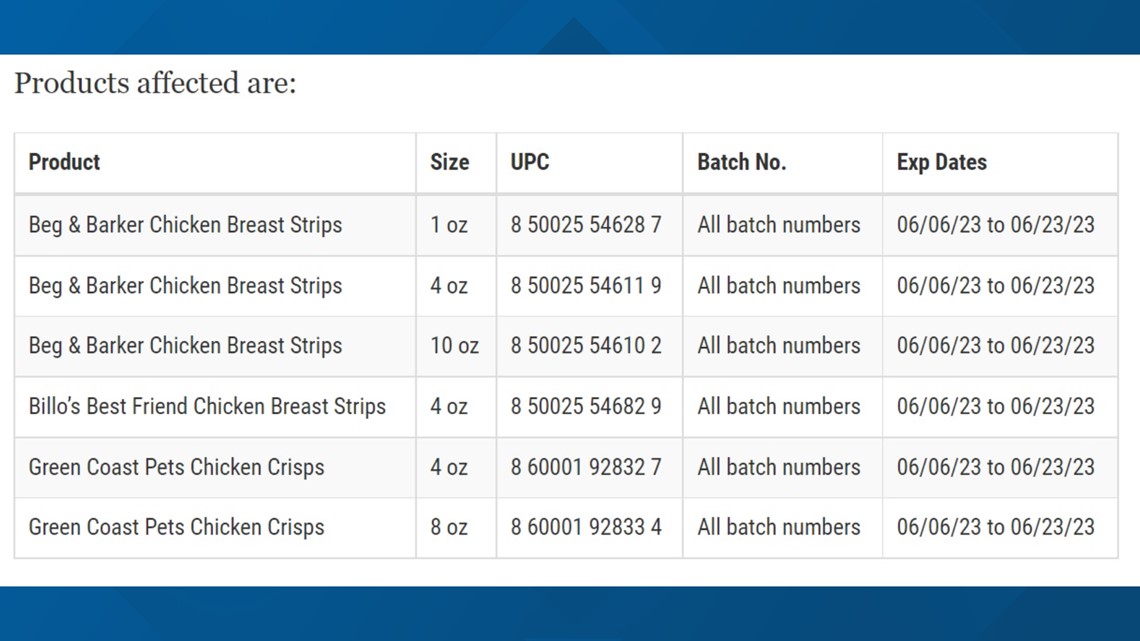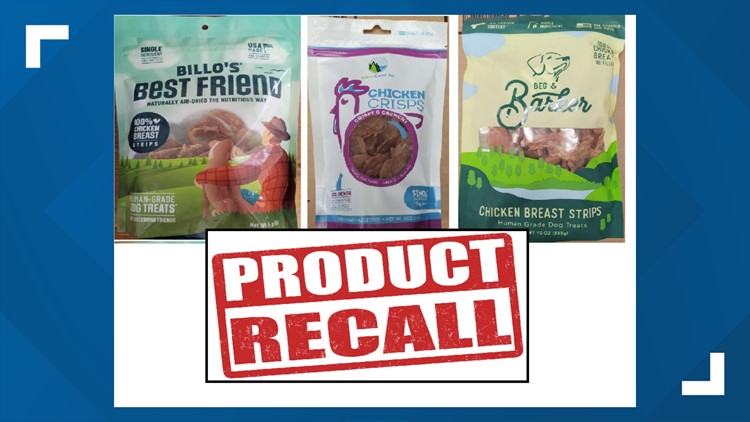GREENSBORO, N.C. — North Carolina is at the center of a nationwide dog treat recall.
The North Carolina Department of Agriculture notified Stormberg Foods after samples showed salmonella contamination in treats that were sent to several main warehouses in California, Minnesota, and Rhode Island.
The recalled treats include:
Billo's Best Friend Chicken Strips
Chicken Crisps
Beg and Barker Chicken Breast Strips
The recall impacts various sizes of the treats, there is one ounce to ten-ounce bags. The bags have expiration dates of June 2023.


Consumers who purchased the products or who have pets that become ill are urged to contact the company:
919-947-6011
While salmonella can affect the pets eating the products, there is a risk to humans as well. Pets can pass the bacteria to their humans.
“The organism is passed in the feces, in the poop of a particular pet, and people inadvertently get that poop into their mouth,” said Dr. Jason Stull, College of Veterinary Medicine, Ohio State University.
Stull goes on to say, “Those that are at increased risk should really try and discourage face-licking. Pets, whether they be dogs or cats or other animals - carry a lot of different organisms in their mouth - just like people.”
Transmission of salmonella, C-Diff resistant bacteria, and Roundworm can occur through bites, scratches, and saliva and when owners clean up after their pets.
According to the FDA website:
Healthy people infected with Salmonella should monitor themselves for some or all of the following symptoms: nausea, vomiting, diarrhea or bloody diarrhea, abdominal cramping and fever. Rarely, Salmonella can result in more serious ailments, including arterial infections, endocarditis, arthritis, muscle pain, eye irritation, and urinary tract symptoms. Consumers exhibiting these signs after having contact with these products should contact their healthcare providers.
Pets with Salmonella infections may be lethargic and have diarrhea or bloody diarrhea, fever, and vomiting. Some pets will have only decreased appetite, fever, and abdominal pain. Infected but otherwise healthy pets can be carriers and infect other animals or humans. If your pet has consumed the recalled products and has these symptoms, please contact your veterinarian.



